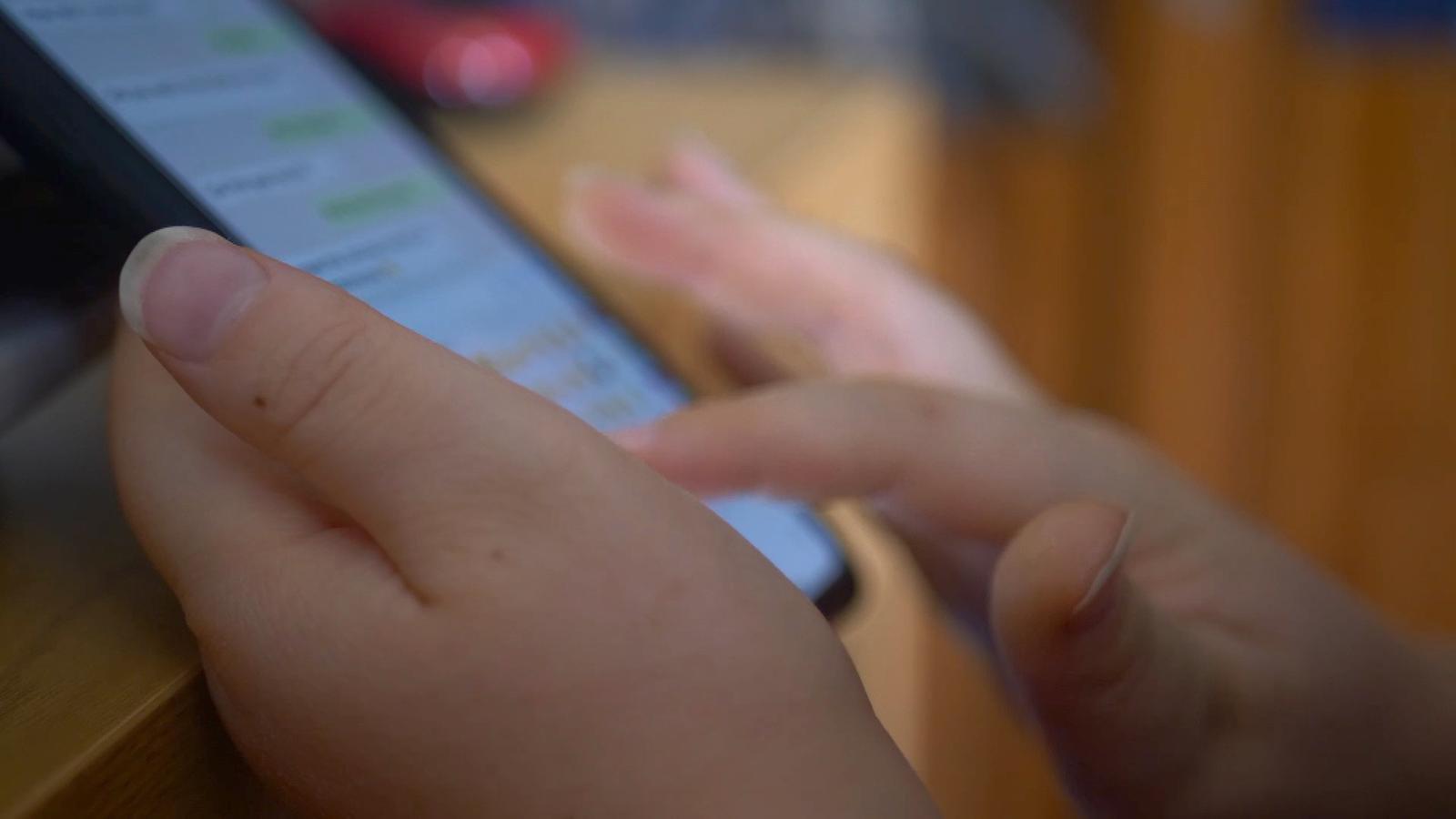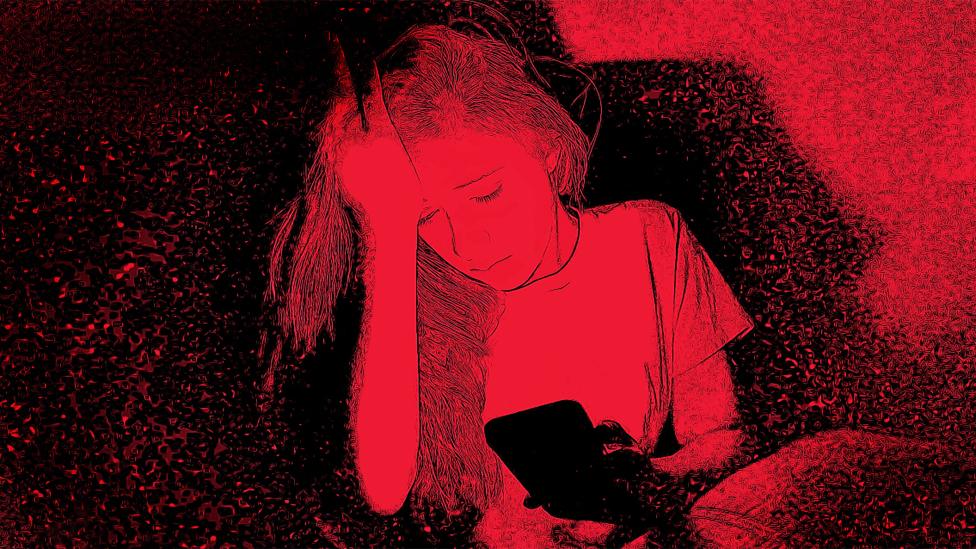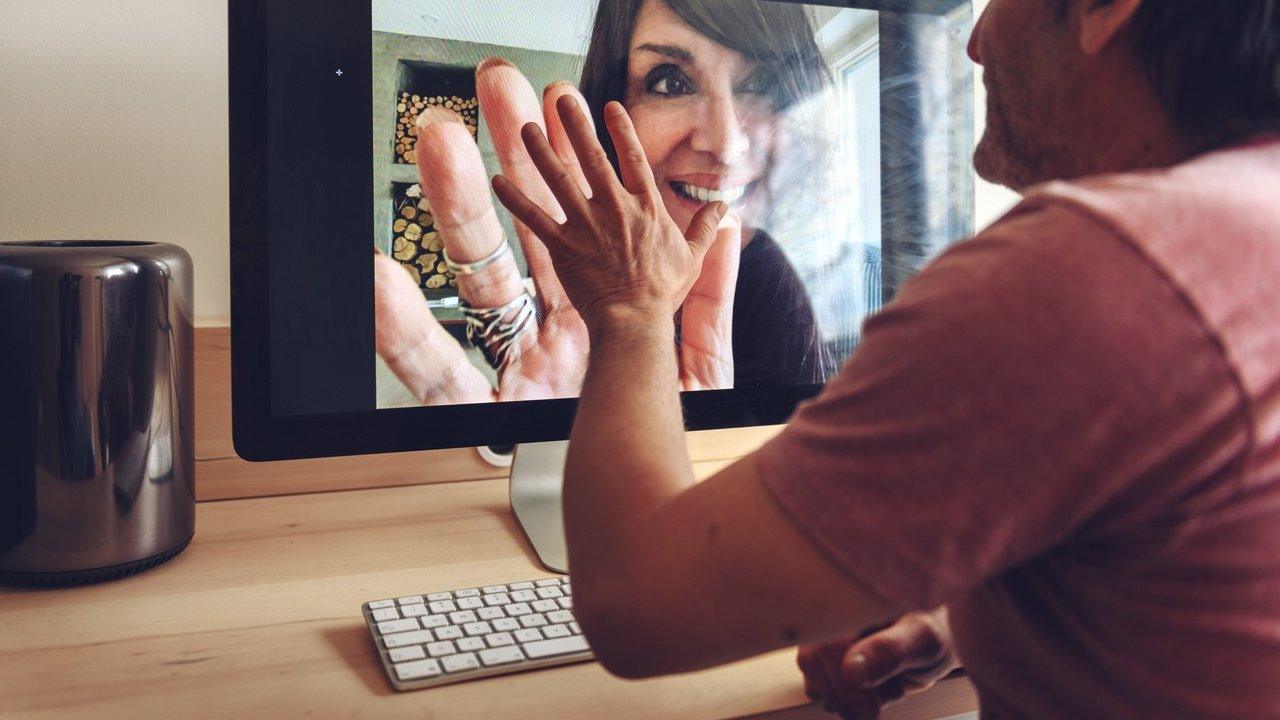Huge rise in reports of online child abuse images
- Published

Children and adults have been spending much more time online
Reports of child abuse images online increased by almost 50% during lockdown, according to the Internet Watch Foundation.
In the 11 weeks from 23 March, its hotline logged 44,809 reports of images compared with 29,698 last year.
The increase follows months in which both adults and children, many of whom who are working at home, have spent significantly more time online.
The government has promised to draw up legislation to reduce online harms.
The Internet Watch Foundation (IWF), which is supported by most social media and tech companies, works to remove child abuse material.
'Stuck at home'
Chief executive Susie Hargreaves said the hugely increased number of people staying at home had led to increased police estimates of offenders online.
"When you match that with children being online for so much longer during the day, stuck at home, we suddenly have got the conditions for more child sexual abuse images to be generated," she said.
The fastest growing category of images being removed by the IWF in recent years has been those generated by children after grooming or coercion.
The figures from the IWF are likely to renew the debate about how to keep children safe online, after months of parents grappling to limit the time their children spend online

Kelly Anderson has been working to moderate her children's online time
Mother of three young children, Kelly Anderson, who started volunteering for the anti-bullying charity, Kidscape, a few months ago in south Wales, says own family have had to work harder at finding a balance with screen time and other activities.
Her children have been spending more time online in recent months, to access school work as well as to keep in contact with family and friends.
"It's important for us they still have the opportunity to be children, to go outside and use their bikes, and play with their toys," she said.
Legislation planned
Kelly says that as parents they put boundaries around recreational screen time, allowing it after school work, helping with chores and having family time.
She also uses a parenting app to track the content her children are viewing online each day.
It allowed her to see when her seven-year-old son accessed video taken from a game that was rated for 18-year-olds.
"Straight away I was able to ask him why he was looking at it. He said his friends had told him it was really good.
"It opened up age-appropriate conversations about why it was rated 18, and what sanctions there would be if he looked at it again. "
'Perfect storm'
The government has promised to bring forward draft legislation against online harms, but there has been growing concern that it will be delayed by the pandemic.
How can children stay safe online? Three young people shared their advice
Andy Burrows, head of child safety online at the NSPCC, warned: "Lockdown has resulted in a perfect storm for online child abuse.
"Harm could have been lessened, if social networks had done a better job of investing in technology, investing in safer design features heading into this crisis. "
NSPCC believes they have not done this because they have not been legally required to do so be a regulator.
However, there is no data as yet showing an increased incidence of harm to children online during lockdown.
It is not clear, for example, whether images being reported were taken or shared before lockdown, began or during the period in question.
"The fear is we don't really know the full extent of the impact of this crisis until children start to go back to school in September and disclose to teachers" said Mr Burrows.
Opportunities for crime
Dr Victoria Baines is a visiting research fellow at the University of Oxford, who previously worked as an analyst at the UK's Child Exploitation and Online Protection Centre.
She believes using existing legislation against criminal activity may be more effective.
She warns increased concern about risks to children online, and reports of images to hotlines, need to be treated with caution and are not the same as children actually being the victims of such crimes.
However, she said: "Online, we have seen some indications that people with a sexual interest in children are talking about the opportunities in lockdown."
The National Crime Agency said its intelligence suggested increased offending.
"We believe the full scale will only be revealed once children return to schools and have more access to trusted adults," a spokesman added.
- Published15 January 2020

- Published24 June 2020
